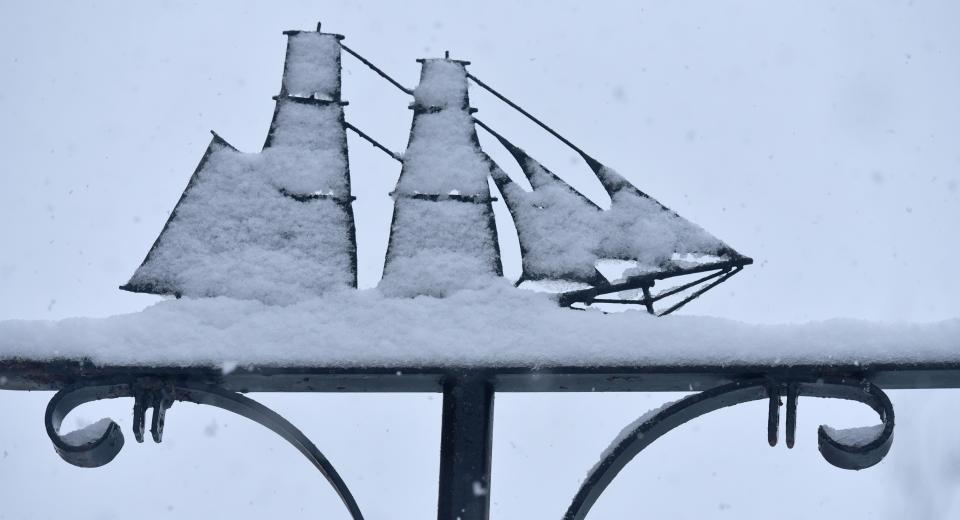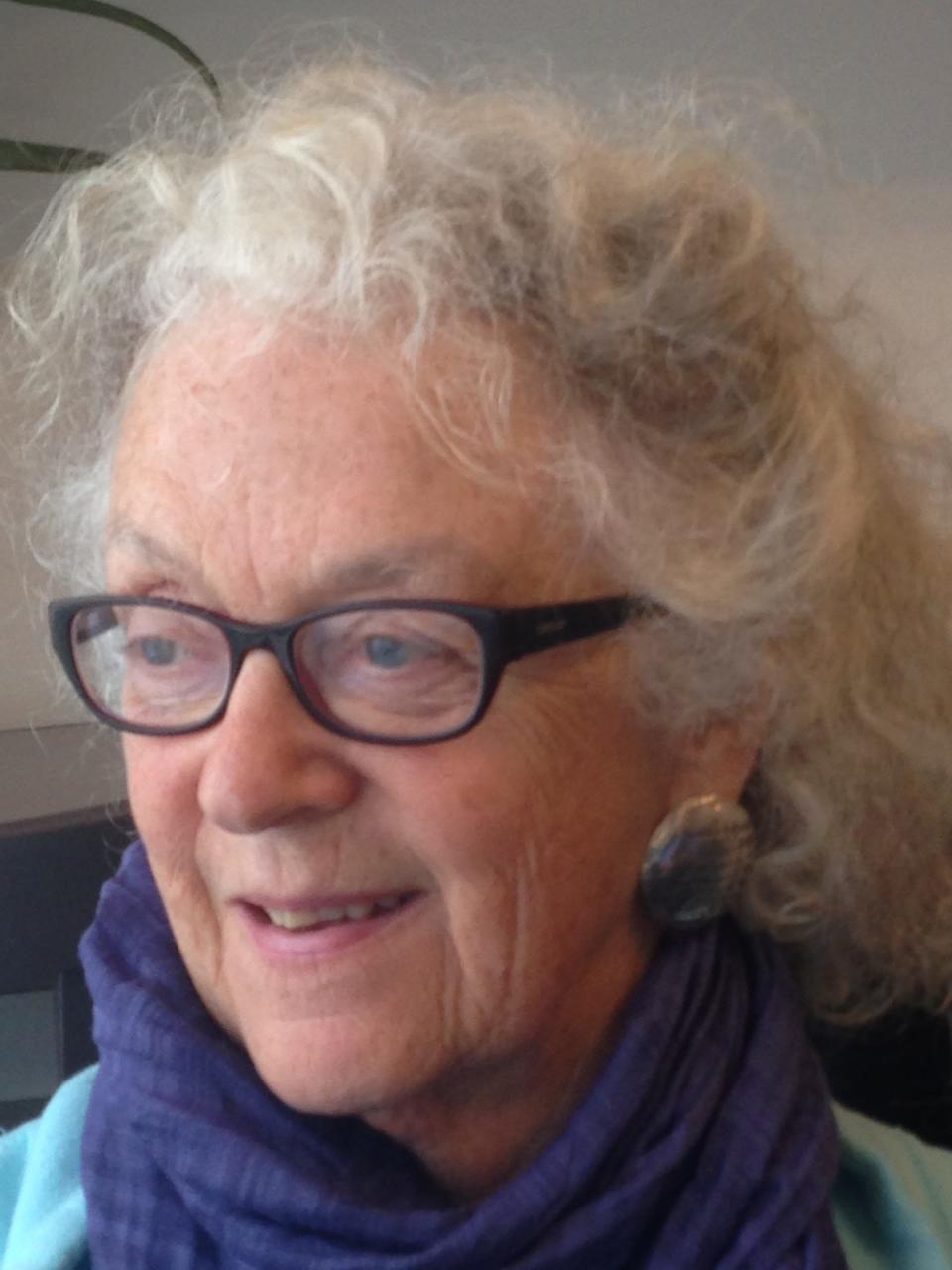Cape Cod Poetry: And now, a few words from the judges
Perhaps aspiring poets hibernate.
Perhaps they are snowbirds, flying away to vacation somewhere warm, beyond Cape Cod’s rainy – sometimes icy – borders.
Perhaps the peninsula, slumbering under a gray quilt, is less inspiring than usual.
Whatever the reason, very few poems were submitted last month – just like this time the year before.

Fortunately, several of the published poets who judge each month and choose winners for the Cape Cod Times Poetry Contest, have once again stepped forward and shared their work. So it's time to meet the poets.
Rosalind Pace lives in Truro, teaches an annual poetry seminar at the Wellfleet Library (coming up in May), mentors a weekly memoirs group, and was Writer-in-Residence at the Lighthouse Charter School from its founding until her retirement. Pace’s poems have been published over the years in many journals; she received a Fellowship in Poetry from Massachusetts Cultural Council in 2016.
“Blue” is appearing in the next issue of The Atlanta Review. The original version of this poem arose from a contemplative moment, sitting at the end of the rock jetty, watching the sun go down, shortly after the Soviets invaded Afghanistan and began their dreadful ill-fated attempt to occupy the country. I lived and taught there from 1962-1964, and still consider it to be a second home. I revised the poem recently: to take it beyond nostalgia, to intensify the fusion of here and there/ past and present/me and you/ interior and exterior.
BLUE
By Rosalind Pace
The April sun slants
across the bay and turns
the Pamet River a deeper
color than turquoise, the color
mountain people glaze
their bowls with, half a world
away. They’d never seen
the sea, yet could invent
this deep-sea-blue, extracted
from the ishkar plant,
going back four hundred
years, this skill passed down
to many sons and daughters,
enshallah. I watch
the evening and the tide.
Now women in Istalif
a few kilometers from Kabul
dress in black, and walk
through rubble and sweet
smoke from dung fires, wailing.
Half a world away
I want to echo the tern’s
cry, or be the empty
space in the arc a gull
makes on the updraft.
I am dressed in black
although I’m not in mourning,
and yet some part of me
has gone, some urge to sing.
The water’s now a deeper
blue, then a silver sheen,
then dark. I cannot speak
about my small complaints.
No bombs or land mines here.
I’m still alive. So are you.
***
Keith Althaus lives in Truro and has published three books of poetry. His fourth, "New & Selected Poems," will be coming out from Grid Books this summer.

Inspiration: I witnessed this, about 20 years ago. Not too far from the great Caravaggio's painting "The Conversion of Saint Paul", about which Thom Gunn wrote a wonderful poem.
Murmuration
By Keith Althaus
The murmuration of starlings
in the air above the bus station in Rome
brought huge crowds every night
at dusk to see them swirl and dive
and tumble and erase themselves
like an Etch-a-Sketch.
They are not here
for our entertainment,
or even study — bordering
on the spiritual, mystical
side of things — but to obey
the primordial command
of magnets under the road,
on the rooftops of garages,
in the core of great machines,
cold and dark, called immobile
but in reality travelling
with us at enormous speed.
We are waiting for
our “Damascus Road/My name is Tania” moment,
as a shadow climbs
the white-washed stairs.
***
Lucile Burt currently lives in Wellfleet. Her most recent book is "The Cone of Uncertainty," published in 2018.

About the poem “A Walk in the Woods”: As I walked on a dirt road with the child of a friend, a boy on the cusp of language, I imagined the contrast between his wordless experience of the world around him and mine. It made me contemplate what is gained and lost in the process of naming things.
A WALK IN THE WOODS
By Lucile Burt
ROYAL OAK, MARYLAND
for Jake
I look up at loblolly pines.
Feathery tops flourish
against a cerulean sky.
I say the name aloud,
a chorus of rolling o’s and l’s.
Spindly naked trunks rise
above oak, holly, sumac, maple.
The toddler teeters in wordlessness,
squats to observe a caterpillar.
“Wooly bear.” I touch it
so it rolls in a ball.
He laughs at this magic,
then dashes down the path,
careens into leaf shower.
I stand still, locked in
the pretty prison of language,
my love for the rhyming chant:
holly, loblolly, wooly bear,
each thing in a word box.
Jake whirls a dance of delight
in a world of nothing named.
***
Robin Smith-Johnson teaches at Cape Cod Community College. She is the author of two books on Cape Cod history, "Legends and Lore of Cape Cod" and "Cape Cod Curiosities" (History Press), as well as co-founder of the Steeple Street Poets. Smith-Johnson lives in Mashpee.

Inspiration: I have always loved how the past still influences the present. For last year’s Mutual Muses challenge sponsored by the Cultural Centerof Cape Cod, I took my cue from a woodcut of two boaters skimming along the waters of Bass River. The image was imbued with a sense of history, where once Pawkannawkut Indians paddled their canoes, present-day boaters also ply the waters of Cape Cod. It seemed as if time had come full circle in a magical way.
Passage
By Robin Smith-Johnson
Windy morning on Bass River.
Clouds race by overhead,
bird forms etched in passing.
Two lone boaters skim along
the inlet, perhaps the spirits
of Pawkannawkut Indians.
There is light and movement here,
the memory of solace in solitude,
alive in the moment.
A single tree buffeted
by eddies of air
points to skiffs passing,
shadows of packet boats
once busy here, vestiges of trade.
What is visible is only so
for an instant --
the boats bob downstream.
Too late now to call them back.
How to submit a poem to the Cape Cod Times
Here’s how to send us your work:
Submit one poem single-spaced, of 35 lines or fewer per month
Poems cannot be previously published (in print or online).
Deadline for submission is April 1, 2023.
Submit by email to cctpoetry12@gmail.com.
Poems should be free of hate speech and expletives (profanity, vulgarity, obscenity).
In the body of the e-mail, send your contact information: name, address, phone number and title of poem; then, in a Word Doc attachment, include poem without name or any other personal info, so that the poem can be judged anonymously.
Poets not previously published in the Cape Cod Times are welcome to submit a new poem each month; those poets previously published in the Times, three months after publication.
Poets will be notified only if their poem is accepted.
Poems will be selected by a panel of readers on the Cape and Islands who are published poets and editors.
Keep connected with the Cape. Download our free app.
This article originally appeared on Cape Cod Times: Cape Cod Poetry judges share their work; enter your poem by April 1

